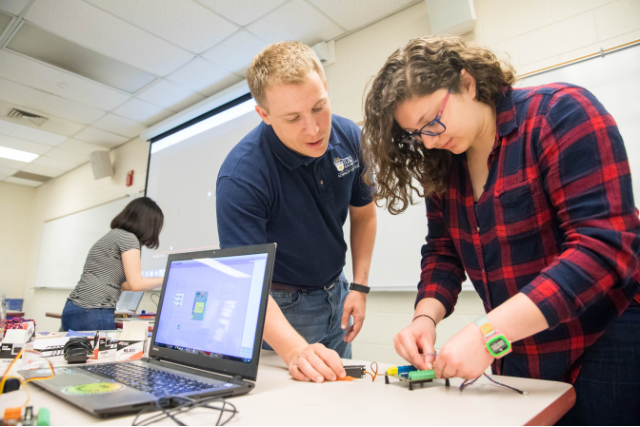New Jersey’s schools are regularly ranked among the best in the country, but that overall success belies a concern that’s particularly worrying for Tanner Huffman, chair of The College of New Jersey’s Department of Integrative STEM Education: Just 27 percent of fifth grade students in the state are proficient in science, according to standardized test scores. Huffman is hoping that TCNJ’s involvement in a new project funded by a recent $5 million grant from the U.S. National Science Foundation can help improve the status quo.

Huffman and TCNJ have joined a regional alliance aimed at recognizing and elevating outstanding STEM educators as part of the National STEM Teacher Corps, providing “the best of the best” a platform and resources to spread their success, he said. Huffman is co-principal investigator on the grant, entitled “STEM Pioneers: Elevating Elementary Teachers as the Frontier of STEM Education,” alongside Kathleen Hill, director of Penn State University’s Center for Science and the Schools, and Gay Stewart, director of West Virginia University’s Center for Excellence in STEM Education at West Virginia University.
The partners will identify 27 teachers as part of the five-year pilot program — nine each from New Jersey, Pennsylvania and West Virginia — who will receive financial and professional support, including annual summits to develop their skills together. The first will take place next summer at TCNJ.
“We firmly believe STEM needs to start early and elementary STEM teachers are at the forefront,” Huffman said. “Supporting them is going to lead to continued success down the line, whether it be supporting students that go into STEM careers or the broader STEM literacy demands of our society today.”
Recruiting students to become teachers in STEM fields is a longstanding national problem, Huffman said. The number of teachers completing science education certification programs fell by half from 2011 to 2021. The NSF grant will allow Huffman and his colleagues to build a peer network for a diverse group of highly effective teachers from across the region.
TCNJ is a natural fit for contributing to the development of a new generation of STEM educators, Huffman said, because of the college’s emphasis on supporting teachers in the classroom. The program offers the opportunity to continue that work while addressing an urgent need in the educator pipeline.
“It really is designed as a way to set these professionals on a trajectory toward national leadership,” Huffman said.
“I’d like to see this project contribute to a growing national recognition of the importance and the value of STEM education as a profession and a career,” Huffman said. “We can elevate the teaching field so it can be recognized for the important work it does.”
— Ben Seal
